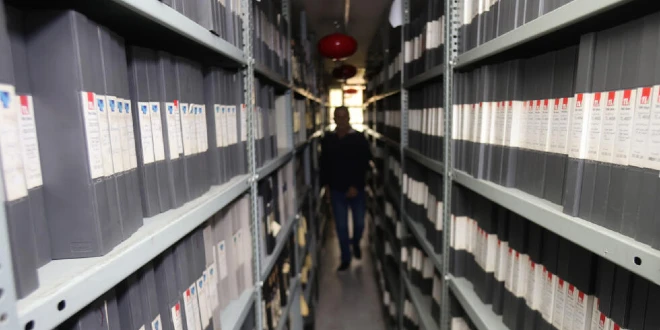For many years, Tele Liban has been an integral part of Lebanese households. Lebanon is now seeking to have the historic archives of this pioneering Arab broadcaster recognized by UNESCO.
Holding the title of the oldest audiovisual archive in the region, Tele Liban is a candidate for inclusion in UNESCO’s Memory of the World Register. This program aims to protect valuable documentary heritage from irreversible loss.
Lebanon’s caretaker Information Minister Ziad Makary informed AFP of the country’s intention to submit Tele Liban’s complete archives for consideration. He emphasized the significance of Tele Liban as the Arab world’s first state-level television network and its possession of the region’s most ancient audiovisual archive.
The collection boasts footage dating back to World War II and the 1940s, despite the network’s establishment in the subsequent decade. The minister expressed this while in his Beirut office.
If admitted to the register, Tele Liban’s archives would join a vast array of global heritage, encompassing print, audiovisual, digital, and other formats.
As Lebanon’s sole TV channel until 1985, Tele Liban’s archives are a treasure trove of history, politics, and culture, not just from Lebanon but the entire Arab world. This includes over 50,000 hours of recordings ranging from interviews and news programs to music concerts featuring icons like Egypt’s Umm Kalthoum and French star Dalida.
Alfred Akar, head of Tele Liban’s archives, highlighted the uniqueness of the collection in documenting Lebanon’s cultural and political life.
Tele Liban’s “golden age” in the 1960s and 70s, marked by its showcase of prominent personalities across various genres, holds a special place in the nostalgic hearts of multi-confessional Lebanon. The network became a poignant chronicle of the nation’s struggles during the 1975-1990 civil war.
Makary underscored the importance of preserving this history for its collective memory and cultural impact in the region. The inclusion in the UNESCO register would symbolically elevate Lebanon’s media heritage on the global stage.
The initiative aims to encompass not just Tele Liban’s archives but also those of the public radio and the National News Agency. The official application process is set to begin the following month.
Lebanon already has two entries on the Memory of the World Register: the commemorative stelae north of Beirut and the Phoenician alphabet, recognized as a foundational script for world alphabets.
Efforts to modernize and digitize Tele Liban’s archives began in 2010, a challenging task amidst Lebanon’s severe economic crisis and limited financial support. The digitization is an ongoing process, as confirmed by Akar.
Zaven Kouyoumdjian, a television personality and author of books on television, including “Lebanon on Screen”, praised Tele Liban for its role in the Arab world’s modernization and its unifying effect on the Lebanese people. He regards the broadcaster’s archive as a national treasure, encapsulating Lebanon’s cultural identity.


